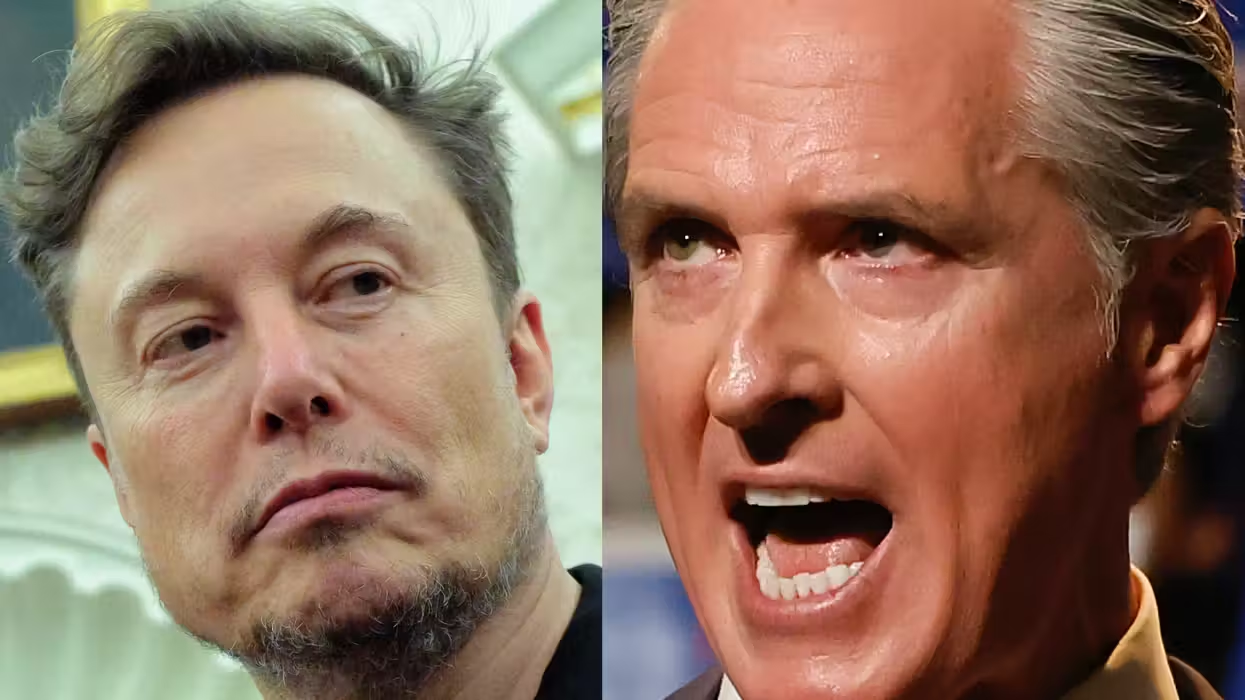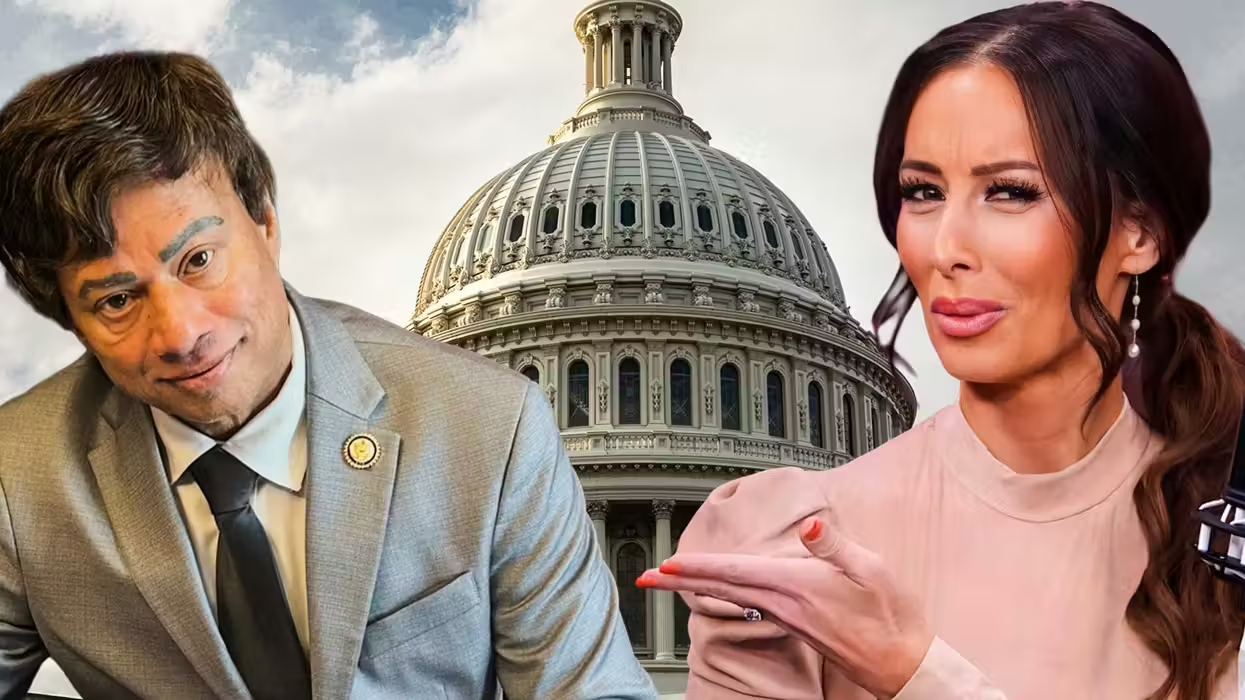When Hillary Clinton kicked off her presidential campaign this month, she declared: “The deck is still stacked in favor of those at the top.” That's a populist tone that differs sharply from her husband’s successful presidential campaigns in 1992 and 1996, which relied on phrases such as “new Democrat” and “the era of big government is over.”
President Bill Clinton’s crowning legislative achievements were welfare reform, a balanced budget and the North American Free Trade Agreement — themes that Hillary Clinton likely won't dwell on.
“As much as those on the left say the Republican Party has moved to the right, the Democrats have also moved to the left,” said Tim Hagle, a political science professor at the University of Iowa. The reason, he said, is fewer competitive House seats over the last two decades, which drives the party activists on both sides to be more ideological.
 Selcuk Acar/Anadolu Agency/Getty Images
Selcuk Acar/Anadolu Agency/Getty Images
"That certainly makes it more difficult for [Hillary Clinton] to seek the nomination as a centrist, or at least as the type of centrist [Bill Clinton] was in 1992," Hagle said.
Here are six areas where the former secretary of state seems to be running against the record of President Clinton’s administration.
1. Free Trade
President Clinton antagonized many in his party's base with NAFTA and advocating for other free trade deals. However, during her 2008 presidential campaign, Hillary Clinton called for a “timeout” on trade deals.
Today, the Trans-Pacific Partnership is causing division among Democrats. After initial support while serving as secretary of state, Hillary Clinton is being iffy at best about whether she will support the President Barack Obama-backed Asian trade deal, which organized labor opposes.
"Hillary Clinton believes that any new trade measure has to pass two tests," Clinton spokesman Nick Merrill said in a statement last week. "First, it should put us in a position to protect American workers, raise wages and create more good jobs at home. Second, it must also strengthen our national security. We should be willing to walk away from any outcome that falls short of these tests. The goal is greater prosperity and security for American families, not trade for trade's sake."
Just before leaving the State Department in January 2013, Clinton spoke in favor of the deal. “In order to keep producing jobs and rising incomes, we have to be smart about how we use our economies,” she said. “So I think the Trans-Pacific Partnership is one way that could really enhance our relationship."
2. Keystone XL Pipeline
Not all differences emerge from Bill Clinton’s days in the Oval Office.
In January 2012, during Clinton's tenure, the State Department recommended that Obama reject the Keystone XL pipeline, kicking off a prolonged, ongoing review by the department.
A little more than a month later, Bill Clinton gave his support for the pipeline, saying, “I think we should embrace it and develop a stakeholder-driven system of high standards for doing the work."
Hillary Clinton has since avoided the topic. Don't count on her taking her husband's side on this matter during the campaign, Hagle said.
“I also can't see her getting behind the Keystone pipeline in a serious way given the emphasis on climate change within her party, particularly the more progressive left,” Hagle said.
3. Entitlement Reform
Stumping in New Hampshire this week, Hillary Clinton stated her policy on Social Security: “We don’t mess with it.”
Yet President Clinton was willing to “mess” with entitlements as the next order of business after the bipartisan balanced budget deal, saying in 1997, "It could be done before the '98 election."
The bipartisan mood in Washington collapsed in early 1998 with the Clinton impeachment scandal.
“The Clinton administration wanted to reach a deal, but Monica Lewinsky sort of got in the way of that,” said Michael Tanner, a senior fellow at the libertarian Cato Institute. “Hillary Clinton is in an interesting position. Does she harken back to Bill Clinton or does she go the direction of [Massachusetts Democratic Sen.] Elizabeth Warren, who wants to expand Social Security?”
4. Same-Sex Marriage
In 2013, Hillary Clinton announced she had changed her stance on same-sex marriage from her 2008 opposition. Last week, the campaign announced an official position, when spokeswoman Adrienne Elrod said, “Hillary Clinton supports marriage equality and hopes the Supreme Court will come down on the side of same-sex couples being guaranteed that constitutional right."
President Bill Clinton signed the Defense of Marriage Act in 1996. The bill recognized marriage as only between one man and one woman and prevents one state from being forced to recognize a gay marriage from another state. For his part, Bill Clinton also changed his position on DOMA, but his wife’s campaign stance still represents a departure from the Clinton presidential legacy.
5. Income Inequality
The wage gap was not something Bill Clinton talked a lot about during the booming 1990s. But as Obama and other Democrats have taken up the cause, Hillary Clinton has too.
Clinton said last week, "There’s something wrong when CEOs make 300 times more than the typical worker."
But, as the Washington Post reported, the disparity between the highest and lowest earners jumped from 75–to–1 before the Clinton administration to 400–to–1 during the Clinton administration. As the economy worsened, the gap narrowed.
6. ‘Vigorous Government'
Bill Clinton’s 1996 declaration that the “era of big government is over” may have been incorrect, but it’s also represents the change in the Democratic party and a difference with Hillary Clinton's assertions during her previous campaign.
In her 2008 campaign, Hillary Clinton said, “We were most successful when we had that balance between an effective, vigorous government and a dynamic, appropriately regulated market.”
That approach isn't likely to change with her new campaign, analysts say.
“There was a time when people said the Democratic Leadership Council was the future of the party,” Tanner said, referring to a moderate Democratic group. “Now, most of the moderate new Democrats, [former Nebraska Sen.] Bob Kerrey, [former Louisiana Sen.] John Breaux, they’re gone.”
Even though she is far ahead of any potential Democratic rivals, a move to the left is still needed to mollify the base, Hagle said.
“One of the things Hillary Clinton needs to do is win big, not just by default," Hagle said. "One way to do that is say the kinds of things that energize her base."
He added, “Of course, for the general election she wouldn't want to be too far to the left or she'll lose a lot of voters in the center.”

 Selcuk Acar/Anadolu Agency/Getty Images
Selcuk Acar/Anadolu Agency/Getty Images






